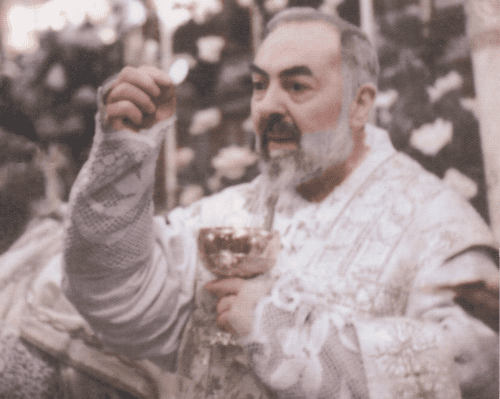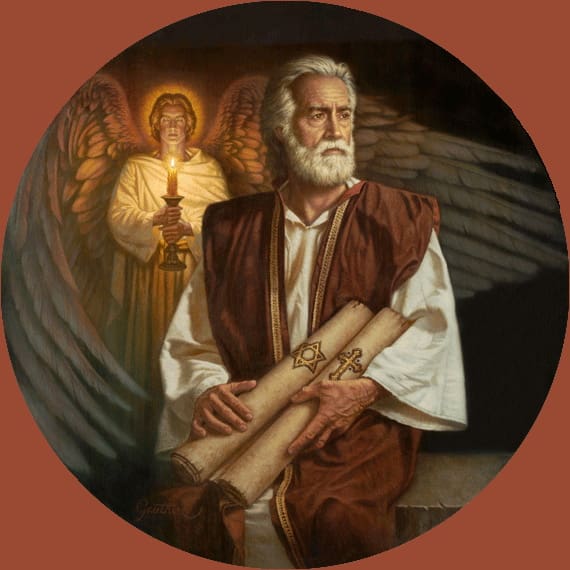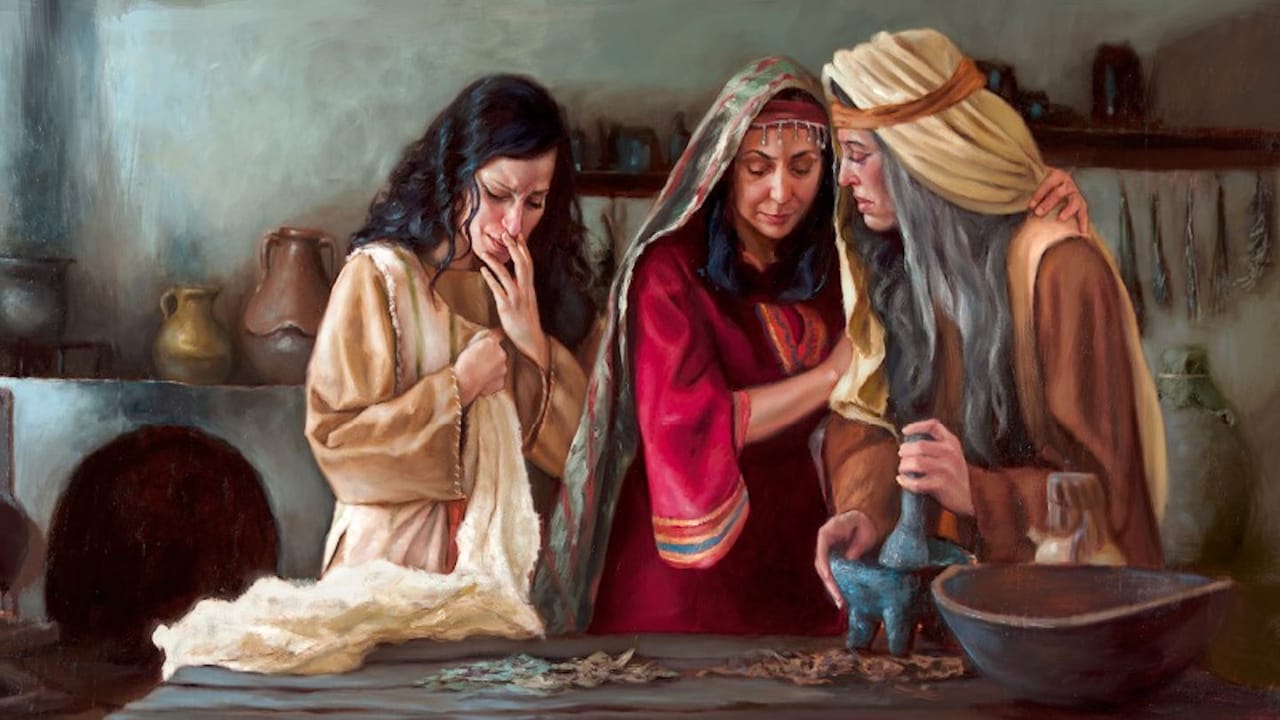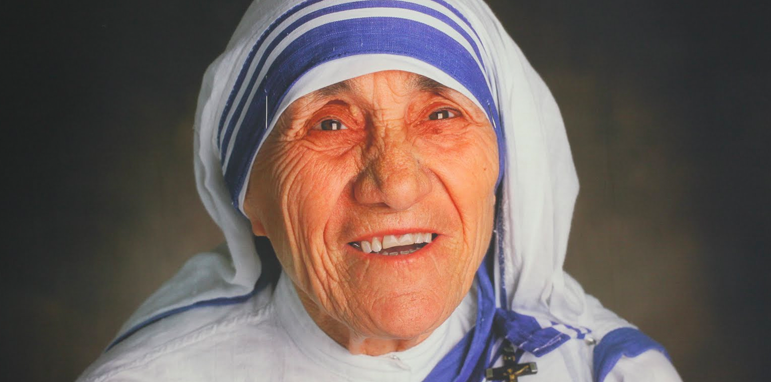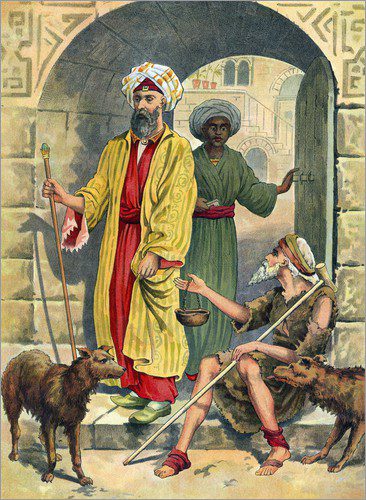
In the Gospel today, we have the parable of the rich man and Lazarus the poor man. St. Augustine in a sermon speaks about this parable, he said, “...in the Gospel it said: “Father Abraham, send Lazarus, let him dip his finger in water and drip it on my tongue, because I am in agony in this flame!” How afraid we felt of something of the same sort happening to us after this life, and our pleading in vain for relief! There is no room, you see, for putting things right when this life is over. When an athlete’s beaten in the stadium, can he hope to compete outside the stadium in order to try again for the prize he has lost?
So what then? If we were afraid, if we were shocked and shaken to the core, let us change our ways while there is yet time, that is a fruitful fear. We beat our (chests) when our consciences prick us with our consciousness of sin. What we are beating is something inside—some bad, evil intention or desire; let it only burst out in confession, and there will perhaps be nothing left to prick our consciences. Let all our sins burst out in confession. So let none of us, brothers and sisters, be ashamed of confessing sins; to lie down signifies humility. Notice how they change places. When the painful difficulty of confessing has passed, there comes the rewarding refreshment of merits; the angels will come and carry up this sore-ridden man and lay him in Abraham’s bosom, that is to say in eternal rest.”
St. Augustine helps us to see this event in the context of Confession, by saying we should confess our failure to help the poor.
Jesus gave the apostles and their successors, the authority to forgive sins. When He appeared to them after He rose from the dead Our Lord said, “Receive the Holy Spirit. If you forgive the sins of any, they are forgiven; if you retain the sins of any, they are retained.” (John 20:21-23) By these words, Jesus gave them and the bishops and priests after them, the power and authority to forgive sins. From the beginning of Christianity unto today, Christians have always confessed their sins to a priest. It was not until the Protestant rebellion in the 1500’s some Christians, who left the Catholic Church, stopped confessing to a priest. Imagine that, for the first 1,500 years of Christianity, all Christians confessed their sins to priests.
The early Church fathers mention confessing sins to a priest. For example, in the year 248 AD, Origen said, "[A final method of forgiveness], albeit hard and laborious [is] the remission of sins through penance, when the sinner...does not shrink from declaring his sin to a priest of the Lord." St. Cyprian of Carthage in 251 AD, which is 1,750 years ago, said, "Of how much greater faith and salutary fear are they who...confess their sins to the priests of God in a straightforward manner and in sorrow, making an open declaration of conscience...” St. Augustine, whose sermon I just read, was born in 354 and died in 430, spoke about Confession. We can see Christians from the beginning up to today, have gone to confession to priests.
Here are some reasons why we should confess our sins to a priest. Most importantly, it is what Jesus commanded of the early Christians. By hearing the priest say the words of absolution, we have certainty our sins are forgiven because the priest says so. Some say, they want to confess their sins to God alone. It is true, we should tell our sins to God everyday, and especially right after we have committed them. But, do we know God has forgiven us? Jesus wants us to confess our sins to God—through the priest. Jesus, in the priest, forgives our mortal and venial sins. The Church states we must confess our mortal sins to a priest. Since “God is everywhere”, He is also therefore especially in the priest, through sacrament of Holy Orders.
Only in Confession do we receive sacramental grace and there is a real washing away of sin. Through the sacraments, we come in contact with Jesus.
Something you may be unaware is that sacramental grace in Confession gives us extra graces to overcome sin. So the more often we go to confession, the easier it is to avoid sin.
It is good for us psychologically- (mentally healthy) to confess our sins to another person. When confessing our sins to a priest, it avoids the hiding of sins from our self. In confession, one confronts their own sins and is not so apt to hide them from one self. When we confess our sins out in the open, the sin, and the devil, loses its hold, and we gain power over the sin.
Confessing our sins to a priest helps us to grow in humility, by admitting what we have done. We avoid pride, the root of many sins.
By confessing, we become more sorry- It’s easy to say we are sorry when we are not in the presence of the person, whom we are apologizing, but it touches our heart even more, when we tell the person, who is (God) that we are sorry, when tell Him who we directly offended.
In Confession, we receive advice from the priest on how to overcome our sins. We can’t give our own advice when confessing our sins at home.
In Confession, we receive a penance. The priest gives us a penance to make up to a certain degree for our sins. Have you ever given yourself a penance, after you told God, you were sorry for sinning? Yet, penance makes up for our sins.
If we can’t do other sacraments our self- why do we think we can confess our sins and receive forgiveness by our self? Each of us can’t offer our own Mass, we can’t baptize our self, nor anoint our selves, nor preside at our own wedding. We can’t confirm our self. We receive sacramental grace, through the help of a priest.
Through Confession, we have greater peace. And it makes us feel good when we have done so. Many people say they feel a burden lifted after Confession. They feel free and happy.
I found a confession story on the Internet. It’s from an anonymous woman in Rochester, Minnesota. She said, “It had been 30 years since my last Confession. I knew I needed to return to Confession, but I was afraid. Where would I start? It had been so long. But because I was also attending Mass and receiving the Eucharist I knew I needed to make a decision soon. I knew it was wrong to continue to receive the Eucharist after being away from Confession for so long. I was searching for the right opportunity, but my fear of going back to the sacrament was very strong.
I knew this was the time God had chosen for me. I chose not to do a face to face Confession. The priest was kind and helpful. The burden of carrying my sins that I was ashamed to confess for so many years had been lifted. It was a time of great thankfulness to God for providing the right opportunity for me. God knows us so well. Since that return to the Sacrament of Confession about 10 years ago, she said, I have been faithful in going to Confession on a regular basis. I usually make my Confession every month or six weeks. It has been a source of great healing for me from past sins. It has lessened temptations and brought me closer to Jesus and my Catholic faith. It has inspired me to reach out now to others to share my experience so others need not be afraid. It is such a blessing to receive this sacrament each and every time. We are so fortunate as Catholic Christians to have this great gift available to us. The Lord is truly kind and merciful!” From Anonymous, Rochester, MN.
My friends, if its been a long time since you have been to confession, don’t worry, the priest can help you. He can help you examine your conscience by going through the 10 commandments and asking yes or no questions, then if he misses something, you should tell him. Its a simple and easy way to go to confession and removes the fear that goes with it. Or you can make a list of sins, and bring it with you to confession, this way you don’t to try to remember everything.
Dear parish family, come to the sacrament of mercy. Once you regularly walk through the door of mercy every month, you will see how it will change your attitude and your way of life. You will become a happier person; a more kind and loving person, because you will have recognized, the poor man at your door step, was yourself all along, whose wounds to your soul needed to be healed by God’s mercy. Once, you confess your sins, your eyes will be open to see the needs of the poor and others around you.
And all you had to do, all along was allow Jesus to give your soul, His mercy through the priest, in Confession, and in return, at the end of your life, you will avoid the agony of the flames. Rather, your soul will be refreshed in the living water in the bosom of the Father’s house (heaven). Ask the Virgin Mary, the refuge of sinners to give you the grace to come to Jesus often to experience His loving and tender mercy.

